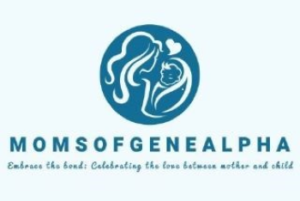
After the joyous occasion of welcoming your newborn into the world, it’s important to remember that your body needs time to heal and recover from the rigors of childbirth.
In this article, we’ll explore what to expect during the postpartum period and offer helpful tips for promoting healing and well-being as you adjust to life with your new baby.
From physical changes to emotional adjustments, we’re here to provide guidance and support as you navigate this transformative journey.
So, let’s dive in and learn how to care for yourself during this precious time of post-birth healing and recovery.
Navigating Postpartum Changes: What to Expect
Lochia Discharge
After childbirth, your body will experience lochia, a vaginal bleeding that lasts several weeks as your uterus sheds its lining. This discharge gradually decreases over time.
It’s essential to monitor the lochia discharge for any signs of abnormality, such as continuous heavy bleeding or large blood clots.
While some clotting is normal as the uterus heals, huge clots or prolonged heavy bleeding may indicate complications like postpartum hemorrhage or infection.
If you notice any concerning symptoms or have doubts about the amount or appearance of your lochia discharge, don’t hesitate to contact your healthcare provider for guidance and evaluation.
Your health and well-being are paramount during this postpartum period, and seeking timely medical assistance can help ensure a smooth recovery process.
Baby Blues
The “baby blues” are a common experience for many new mothers, characterized by mood swings, tearfulness, irritability, and feelings of sadness or anxiety.
These emotions typically arise within the first few days after childbirth and can be attributed to hormonal fluctuations, exhaustion from labor and delivery, and the adjustment to new motherhood responsibilities.
While the intensity of these feelings can be unsettling, it’s important to know that they are a normal and temporary part of the postpartum period.
Most women find that these symptoms gradually improve on their own within a week or two as hormone levels stabilize and they adapt to their new role as parent.
However, suppose these feelings persist or worsen over time.
In that case, it’s crucial to seek support from loved ones and healthcare professionals, as they may indicate a more serious condition such as postpartum depression.
Postpartum Depression (PPD)
Postpartum depression (PPD) is a serious mental health condition that can affect you after childbirth, typically emerging within the first few weeks to months postpartum.
Unlike the “baby blues,” which are temporary and mild, PPD involves persistent and intense feelings of sadness, hopelessness, and worthlessness that interfere with your daily functioning and your ability to care for yourself and your baby.
You may also experience significant changes in appetite and sleep patterns, difficulty bonding with your baby, overwhelming fatigue, and thoughts of self-harm or harming the baby.
PPD can be caused by a combination of hormonal changes, psychological factors, sleep deprivation, and external stressors.
You need to recognize the symptoms of PPD and seek help from healthcare providers, therapists, or support groups.
Treatment options may include therapy, medication, support groups, and lifestyle changes.
With proper support and treatment, you can recover from PPD and enjoy a healthy and fulfilling bond with your baby.
Breast Changes
Your breasts may experience significant changes after childbirth, including sagging or the development of stretch marks.
These changes are a natural part of your body’s adaptation to milk production and breastfeeding.
During pregnancy, your breasts enlarge and become engorged with milk, which can cause stretching of the skin and supporting tissues.
After childbirth, as your milk supply adjusts to meet your baby’s needs, your breasts may change in size and shape, leading to sagging or drooping.
Additionally, hormonal fluctuations and the release of prolactin during breastfeeding can contribute to changes in breast tissue.
While these changes are normal and temporary, they may affect your self-esteem and body image.
It’s essential to practice self-care and seek support from healthcare providers or lactation consultants if you have concerns about breastfeeding or breast health.
Remember that your body has undergone an incredible journey to nourish and care for your baby, and these changes are a testament to your strength and resilience as a mother.
Tips to help you handle and recover from postpartum changes
Here are some tips to help you handle and recover from postpartum changes:
Practice Self-Care: Make time for self-care activities that help you feel relaxed and rejuvenated.
This could include taking a warm bath, practicing deep breathing or mindfulness exercises, or simply enjoying a quiet moment alone.
Stay Active: Engage in gentle exercises or activities that promote healing and boost your mood.
Start with activities like walking or postpartum yoga, and gradually increase intensity as you feel comfortable.
Eat a Balanced Diet: Fuel your body with nutritious foods that support healing and replenish your energy levels.
Include plenty of fruits, vegetables, lean proteins, and whole grains in your meals, and stay hydrated by drinking plenty of water.
Seek Support: Don’t hesitate to reach out to your partner, family members, or friends for support.
Having a strong support system can make a significant difference in your emotional well-being and recovery process.
Communicate with Your Healthcare Provider: Keep open communication with your healthcare provider about any concerns or symptoms you may be experiencing.
They can offer guidance, resources, or referrals to specialists if needed.
Get Plenty of Rest: Prioritize rest and sleep whenever possible, especially during the early weeks of postpartum recovery.
Listen to your body’s cues and take naps during the day if you’re feeling tired.
Be Patient with Yourself: Remember that recovering from childbirth and adjusting to motherhood takes time.
Be patient with yourself and allow yourself to rest, heal, and adjust at your own pace.
By implementing these tips, you can support your body’s healing process and navigate the postpartum period with greater ease and confidence. Remember to prioritize self-care and seek help when needed, and know that you’re not alone on this journey.
Conclusion: In conclusion, the postpartum period is a time of significant physical and emotional changes for new mothers.
It’s important to recognize and understand these changes, as well as implement strategies to support your recovery and well-being.
By practicing self-care, staying active, eating a balanced diet, seeking support, communicating with your healthcare provider, getting plenty of rest, and being patient with yourself, you can navigate the postpartum journey with greater ease and confidence.
Remember that every mother’s experience is unique, and it’s okay to ask for help when needed.
Above all, cherish the precious moments with your newborn and prioritize your health and happiness as you embark on this incredible journey of motherhood.
Disclaimer :
The information provided in this article is for educational and informational purposes only and should not be construed as medical advice. Always consult with a qualified healthcare professional or physician regarding any questions or concerns you may have about your postpartum recovery or health. The use of any affiliated products or techniques mentioned in this article is at your sole discretion.

